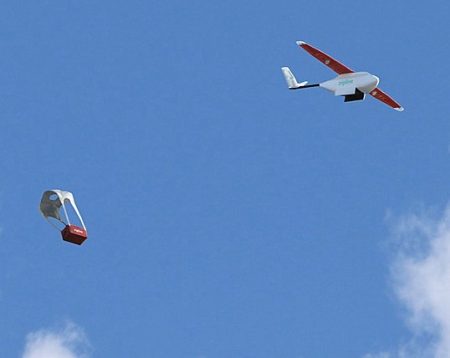October 24, 2016 – Remote villages and towns in Costa Rica will be getting prescriptions delivered to them by drones beginning next year. The program is being operated by the Costa Rican Social Security Fund (CCSS). Using drones to get around what can only be described as some perilous road conditions will save days for those who need their medications. The CCSS service will make it possible to deliver drugs within 45 minutes of order receipt.
States Esteban Vega, National Coordinator of Pharmaceutical Services, “we’re talking about patients that need to travel for hours in difficult conditions to reach medical care.” Currently the only way to get drugs to patients is to use all-terrain vehicles (ATVs). Having driven Costa Rican roads recently I can fully appreciate the challenge faced by the country in getting medicine to remote communities. The terrain is rugged and many roads after rains become rutted and filled with potholes. This is particularly true in western Talamanca, a very mountainous area of the country where CCSS will test the technology.
The company providing the service is called Zipline. The name is entirely appropriate for a country where ziplining through mountain and tropical wet and dry rainforest is a huge tourist draw. Zipline has developed a small robot airplane capable of carrying vaccines, medicine or blood. A fleet of these planes, called Zips can provide delivery of small mass, high value goods like medications to large population areas where roads are not always passable. The Zips weigh about 10 kilograms (22 pounds) and travel at speeds of 100 kilometers per hour. They drop their supplies by parachute at prescribed locations, usually an open field where sight lines ensure an accurate drop.
Zipline began working with the government of Rwanda this year delivering blood products to 20 hospitals. It has been a very successful program in that African country. Now Costa Rica is following suit hoping in this pilot project to deliver 13,200 medical packages to doctors located in these isolated communities where they can then dispense the medications to their patients. Total cost of the project is estimated at $26,000 U.S.









